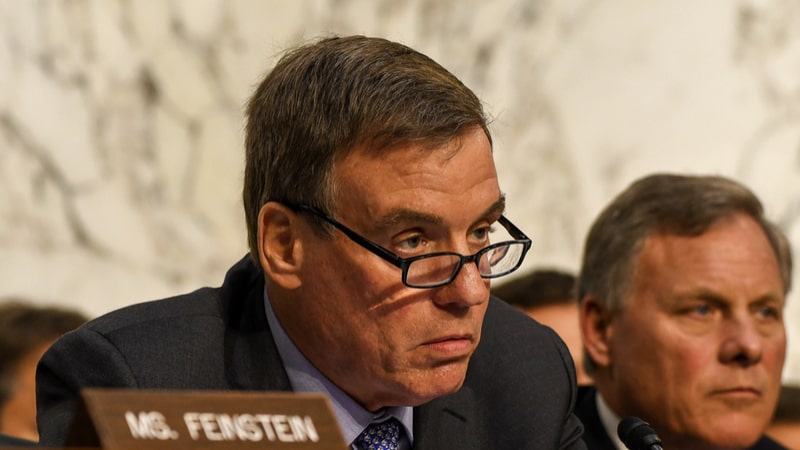
Sen. Mark Warner, D-Va., on Dec. 6 introduced a bill that aims to modernize the Federal government’s security clearance system and reduce the government’s backlog of security clearances, which the senator said now stands at about 600,000.
The bill would hurry along some changes that are already taking place with how the Federal government deals with the security clearance application process, including consolidation of the National Background Investigations Bureau (NBIB) with the Defense Department (DoD). NBIB has been housed in the Office of Personnel Management, and its shift to DoD was articulated in a Federal government reform and reorganization plan issued by the Office of Management and Budget (OMB) in June.
A release from Sen. Warner’s office said his bill–the Modernizing the Trusted Workforce for the 21st Century Act–would “hold the Executive Branch accountable for addressing the immediate crisis of the backlog investigation backlog” by, among other means, folding NBIB into DoD.
In terms of specific goals, the bill would require “the OMB-led interagency Performance Accountability Council (PAC) to provide plans to reduce the background investigation inventory to a steady-state by the end of 2019 (today it’s over 600,000),” according to Sen. Warner’s office.
It would also require the PAC to reform processes so that 90 percent of secret clearances can be processed within 30 days, 90 percent of top secret clearances can be processed within 90 days, and 90 percent of determinations regarding reciprocity can be made within two weeks.
Sen. Warner’s office said the bill also would “implement practical reforms so that we can design policies and timelines for clearances that reflect modern circumstances,” and said those reforms “must be implemented equally for all departments, and for personnel requiring a clearance, whether they are employed by the government or industry.”
The legislation would “strengthen oversight of the personnel vetting apparatus by codifying the Director of National Intelligence’s (DNI) responsibilities as the Security Executive Agent,” and “promote innovation, including by analyzing how a determination of trust clearance can be tied to a person, not to an agency’s sponsorship,” Sen. Warner’s office said.
As Security Executive Agent, the DNI would be charged with reexamining the government’s SF-86 questionnaire and adjudicative standards, expanding “innovative technique for investigative interviews,” and employing “continuous evaluation to displace the need for time-based periodic reinvestigations,” Sen. Warner’s office said.
“The current process for granting security clearances to government personnel and contractors is in dire need of reform,” said Sen. Warner in a statement last week. “In light of new and emerging threats, this bill reflects the changes we need to make to this 70-year-old system to adjust to the increasing availability of data, new technologies, and a more mobile workforce so that we can maintain the pipeline of trusted professionals that the nation requires.”
His office also noted that the Government Accountability Office earlier this year added the government-wide personnel security clearance process to its list of “high-risk” issues in need of reform.
In the IT security arena, long waits to obtain government clearances often have been cited as stumbling blocks to sharing cybersecurity threat data between the government and private sector entities.
David Berteau, president and CEO of the Professional Services Council, commented in a statement that the “current backlog and wait times add risk to government missions, contract performance, and the ability of both the government and contractors to recruit and hire the talent we need.” He said the legislation, if it becomes law, “will reduce these negative impacts while maintaining integrity in the system and better protecting our national security.”
